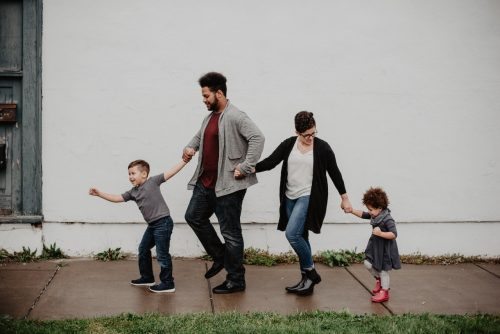Wondering about family therapy? Should there be turbulent seas in your family, consider family therapy as your beacon towards tranquility. Character traits or behaviors exhibited by family constituents are fundamentally linked with their upbringing. Usually, psychological issues that plague them have roots traced back all the way to traumatic childhood experiences like a pancreatectomy incident or episodes of parental alienation. This article discusses how family therapy helps its family members get the overall benefits of getting into family therapy.
Family therapy further provides an inclusive and nurturing platform to address these deep-seated issues within home structures and assist each constituent in overcoming them effectively, thereby creating a harmonious environment conducive to growth and prosperity-a surefire answer when times get tough.

As such, multifaceted problems call for an equally comprehensive solution–enter household therapy.
Family Therapy May Be Your Best Solution
Psychologists attribute a family member’s behaviors and attitudes to how they are brought up. Family members who have psychological problems tend to manifest because of childhood trauma such as pancreatectomy or parental alienation. This cements the link between mental and family health, as backed up by the findings of the American Association for Marriage and Family Therapy.
What Is Family Therapy? Is Family Therapy Applicable To Our Family?
Several ways exist for household therapy: some do it online, and some families opt for face-to-face therapy sessions with their family therapist. No matter what therapy avenue you choose or association you aproach, it’s most important that you go and take this step for your family.
Journey Towards Better Understanding Through Family Therapy
Family therapy is a form of therapy that aims to promote healthy family relationships by helping family members understand each other better. This type of therapy involves working with a mental health provider or other mental health professionals who specialize in functional family therapy or structural family therapy and are trained to address a variety of family issues. One family member may seek therapy to address their mental health condition or to navigate major life transitions. These topics are typically the main content of these sessions.
Improving Communication: Family Therapy And Resolving Issues
Marriage therapy can also be incorporated into family therapy sessions to solve family issues and improve communication among family members. The American Association for Marriage and Family Therapy recognizes the importance of family therapy in promoting overall family well-being.
Individual Vs. Family Therapy
Marriage and family therapists emphasize that individual or personal therapy is very different from family therapy. In personal therapy, the individual is the client; in family therapy, the family is the client.
Individual Family Therapy Vs. Group Therapy
Individual therapy focuses on how a person can cope with his existing mental health conditions and improve his day-to-day life. Individual therapy mainly consists of talk therapy wherein the mental health professional will engage patients to talk about their life experiences and difficulties. The professional would also recommend specific challenges or courses of action.
If necessary, your family therapist will also prescribe certain medications to cope with anxiety, depression, or insomnia.
The Heart Of Family Therapy: A Therapy For Improving Family Dynamics
On the other hand, families who have been through long periods of emotional distress due to dysfunctional family members, financial problems, chronic illness, or sudden deaths may opt to go through family counseling. Judye Hess, Ph.D. says that “group therapy can be more powerful and mutative than individual therapy.”
Rectifying Dysfunctional Families: A Journey Into Dynamics And Emotional Conditions
Family psychotherapy involves improving household dynamics and emotional conditions through the use of psychotherapy. The family therapist usually goes for a more encompassing approach compared to individual ones. They dig deep to uncover family issues and other underlying causes for dysfunctionality.
Why Choose Family Therapy?
“Family therapy says there are a number of people who are impacted by a problem, so everyone should work together and support the individual who has the problem,” explains Anthony Siracusa, Ph.D. Each has its idiosyncrasies and approaches to certain things.
A Cookie-Cutter Approach Doesn’t Apply To Therapy
Family Therapy Benefits
Family psychology, or family therapy offers a holistic approach to mental health by involving the entire family in the therapy process. The goal of family therapy is to promote healthy life by addressing mental illness and mental disorders that may affect family members.
By exploring past experiences and building coping skills, families can learn to communicate effectively and work together to overcome challenges. Family therapy may include couples therapy or individual sessions for family members as needed and can be an effective way to improve overall family functioning and well-being. The privacy policy of therapies like these are also great. These sessions provide a safe and private space for everyone to express their thoughts and emotions.
You already know the key differences between family and individual therapy. But what will convince you to try family therapy? Here are several of the key benefits that your family will enjoy.
1. Family Therapy Help Build Better Lines Of Communication
Several families have trouble keeping their communication lines open, according to mental health professionals. In this fast-paced world, it’s easier to text someone next door than talk to your father downstairs. Family dinners are becoming less frequent, with more spaces in between, as compared to about 30 years ago, when cell phones were not yet generally circulating in public.
Building lines of communication take work. Sadly, a lot of families don’t put in much effort anymore. However, the bright side is that through emotion-focused family therapy, a family therapist will walk you through the process of building better family relationships, and improve communication between and among family members.
2. Family Therapy Help Create A Better Understanding Of Each Family Member

When you are born into a specific family system, you tend to grow up assuming that everything in the world works that way. However, as you grow older, you learn that that is not the case: every unit has its system and each family member has different family roles. That role may have not been communicated well to other family members of the unit.
Other family members interact poorly and may have unmet expectations regarding other family members that could cause tension inside the entire household relationship. For example, a child may have been building resentment towards parents for failure to meet their expectations and help with their mental health problems. The marriage and family therapists could act as a mediator during family therapy sessions.
3. Family Therapy Help Cope With Specific Issues Inside The Family
At times, there may be issues specific to the household that has remained shoved under the bed for years. If left unresolved, these issues may have resulted in unnecessary tension between family members.
These issues can be very varied. It can include substance abuse, anger management issues, self-harm, or other behavioral problems. What a licensed marriage and family therapist does at this point is to help the individual first cope with issues. Then, comes the circle. The family members should be able to act in concert to help that particular family member.
In correcting bad habits, family members should be a person’s first line of support.
Lynn Ponton, MD points out, “Family therapy also helps create a sense of teamwork and reduce the sense of “it’s the child’s problem, not mine.”
Best Family Therapy Option For Families In Deep Emotional Turmoil
Family therapy is a form of therapy that can be used to address interpersonal conflict, including issues related to domestic violence.
A licensed professional, such as a social worker, with clinical experience can help families work through these issues in a safe environment. The Cleveland Clinic and the American Association for Marriage and Family Therapy both recognize the importance of family therapy in addressing domestic violence and improving family relationships.
Marriage and family therapy can be the best option for families in deep emotional turmoil. These troubled families may have long neglected their problems, to the detriment of their psychological health.
When children are brought up in a household with problematic behaviors, they tend to grow up as troubled and distressed adults. To break these family patterns, marriage and family therapy can help families cope with issues, help them understand their roles, resolve issues, resolve conflicts, and establish better lines of communication.
Frequently Asked Questions
What Is The Goal Of Family Therapy?
The primary objectives usually include strengthening communication, addressing household challenges, managing and comprehending particular domestic situations, and promoting a more effectively functioning home setting. The emphasis is on modifying and augmenting the ongoing interactions among family members while defining suitable boundaries to establish a healthier structure.
What Are The Disadvantages Of Family Therapy?
Once it begins, starting the self-reflective journey can change how you view certain situations. It can get tough, especially if others involved are unwilling to recognize and break unhealthy habits. As a result, one might feel sad, guilty, anxious, angry, or frustrated. This journey might also bring up hurtful memories and strain relationships in the family. Importantly though, such an introspective process has its limitations. The final outcome often depends heavily on the observer’s personal interpretations which can be subjective – meaning different observers may have differing views based on their own biases.
Can Household Therapy Make Things Worse?
Can an atmosphere of open dialogue lead to worsening conditions? Certainly not. Initiating discussions may sometimes seem to intensify the issue since it brings the concern into focus while aiding the resolution process.
Nevertheless, there could be increased stress, feelings of helplessness, and even anger. In certain cases, there might be new complexities that surface due to mismanaged dialogue or interaction. It’s crucial to remember that such drawbacks do not signify failure, rather they highlight areas needing more focused attention.
Besides, ineffective communication can pose a significant challenge. Sharing one’s thoughts openly and honestly is vital for meaningful conversation. Breakdowns in this process can lead to misunderstandings or strained relationships.
Equally important, dependency on these communicative environments should never undermine one’s sense of self-efficacy nor should it negatively impact professional reputation or social circles.
Who Is Involved In Family Therapy?
A professional with specialized training in psychology or therapy often provides assistance in resolving relationship issues and conflicts. Holders of advanced degrees may have credentials from respected organizations that specialize in human interaction dynamics.
How Do You Structure A Household Therapy Session?
The secret to leading an effective household meeting comes down to four main elements. To begin with, creating an atmosphere conducive to positive dialogue is integral. This step helps set the tone for uplifted spirits and open communication among all parties involved.
Secondly, establishing trust before the inaugural meeting plays a pivotal role in shaping future interactions. Laying the groundwork for solid trust early on not only encourages transparency but also fosters collective responsibility within the household.
Another crucial aspect is delving into understanding everyone’s specific roles clearly within the family. This practice guarantees smooth functioning and prevents potential conflicts or misunderstandings from arising due to role misinterpretation.
Finally, planning and incorporating activities between meetings proves beneficial too. Introducing shared tasks or events periodically maintains strengthened bonds along with enhanced constant communication amongst family members of the house.
Case in point; for continued productivity, you could consider restructuring your approach by alternating participation between adults one week and children on another week ensuring seamless functioning of these gatherings.
What are the basic concepts of family therapy?
What is the family therapy approach?
What type of therapy is best for families?
What are the 3 goals of therapy for families?
What is the success rate of family therapy?
What are the four stages of family therapy?
For which group is family therapy most effective?
What are the basic techniques of family therapy?
What are common family therapy techniques?
